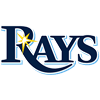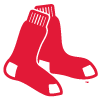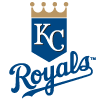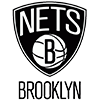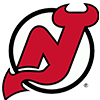Getting a "Hold" on the 2014 season
Spring training is right around the corner, and despite some pretty deep snow where I am, Opening Day will be here before we know it! This is Week 1 of Mound Musings for 2014, and it's going to be something of a special edition. I'll be providing my annual mound review for each division in a six-part series beginning next week, but we had a request for some thoughts regarding the "holds" category, and I decided to throw it out there to kick off the year. Every league doesn't count holds as a scoring category, but if yours does, here are some ideas to consider on draft day.
Keep Your Options Open
Perhaps my favorite angle for collecting holds is to keep my options open while targeting pitchers who could help me in the category. That is, I like to gather guys that, if for some reason they don't provide holds, will contribute in other categories - primarily saves or maybe even wins.
Holds are most likely to be generated by pitchers who set-up a team's closer in the sixth, seventh, or eighth inning, so why not look at decent teams with somewhat volatile closing situations, and add the set-up man most likely to step into the closer's role if the regular closer falters? The worst case scenario is you have to find other pitchers to give you holds if your guy starts closing, but saves are almost always harder to come by,
Getting a "Hold" on the 2014 season
Spring training is right around the corner, and despite some pretty deep snow where I am, Opening Day will be here before we know it! This is Week 1 of Mound Musings for 2014, and it's going to be something of a special edition. I'll be providing my annual mound review for each division in a six-part series beginning next week, but we had a request for some thoughts regarding the "holds" category, and I decided to throw it out there to kick off the year. Every league doesn't count holds as a scoring category, but if yours does, here are some ideas to consider on draft day.
Keep Your Options Open
Perhaps my favorite angle for collecting holds is to keep my options open while targeting pitchers who could help me in the category. That is, I like to gather guys that, if for some reason they don't provide holds, will contribute in other categories - primarily saves or maybe even wins.
Holds are most likely to be generated by pitchers who set-up a team's closer in the sixth, seventh, or eighth inning, so why not look at decent teams with somewhat volatile closing situations, and add the set-up man most likely to step into the closer's role if the regular closer falters? The worst case scenario is you have to find other pitchers to give you holds if your guy starts closing, but saves are almost always harder to come by, and if you get too deep in save providers, they can make excellent trading chips for your team's other needs as the season progresses. Versatility on your roster is a great thing to have, and this is an area where you can often find that asset.
Obviously this plan goes hand-in-hand with identifying the more shaky closing scenarios, and then selecting the guy who you believe will step in if things get ugly. Remember, the next in line or closing isn't always going to be the primary eighth inning set-up specialist. The team may opt to keep that role settled and look elsewhere for the man they want closing. Make sure your holds candidate has the tools and mound presence to be a successful closer should the opportunity present itself.
I also mentioned the possibility of additional wins. That's not so much from vulturing - far too difficult to predict in my opinion - but rather from a role change that sees your holds provider move into the starting rotation. This one is more complicated to assess. It typically happens more often with young pitchers the team is trying to protect. One way to keep the innings down on a highly-regarded young pitcher is to start them out in the bullpen, and if things go well, move them into the rotation later in the year.
The best of this, at least for your fantasy team, is that it happens most often with very high upside arms so adding the pitcher to your roster, especially in keeper leagues is a nice bonus. The negative is the potential price tag. Because the pitcher would probably be a hot commodity if he were in the rotation on Opening Day, he may be rather expensive for a reliever. In any event, uncovering future quality starters and/or future closers is a sound investment that just gets better when they can provide you with stats in another category while you wait.
Check the Starting Rotations
This is a factor that some owners fail to take into consideration when looking for holds on draft day. Better teams typically generate more holds (I'll talk about that more in just a minute), but those better teams may or may not have rotation pitchers ideally suited to providing those holds on a consistent basis.
Some teams, especially those with considerable quality pitching depth in the starting rotation and in the bullpen don't generate many holds from just one or two pitchers. For example, last season, Detroit and Philadelphia each had two starters in the top 10 in innings pitched. That means that their starting pitcher might pitch a complete game (becoming a real rarity) or he might go eight innings and turn the ball directly over to the closer - no hold possibility. There are times when this can be an extreme scenario. The 2011 Phillies with Roy Halladay added to last year's innings eaters Cliff Lee and Cole Hamels went the distance in more than 11 percent of their games, and saw numerous other days where the starting pitcher lasted eight innings.
A weak or thin bullpen can minimize the impact of innings eaters in the rotation because the manager may not feel too comfortable using anyone other than Mr. Reliable in a close game and that pitcher can run up a lot of holds even when they aren't coming all that frequently. Conversely, a strong bullpen can magnify the impact of pitchers lasting deeper into games. When the manager has a whole menu of arms he can count on, he can rest pitchers more regularly, and match up more often rather than relying on a single pitcher to bridge the gap to his closer.
I won't always rule out a reliever on a team with excellent starting pitching and/or a deep bullpen, but I am more inclined to look for a guy who more likely fits the other two criteria of being a closing option on a team with an unsettled back of the bullpen, and a team that figures to win often, with leads heading into the middle innings.
Winning Counts
And finally, look closely at winning teams. Those teams known for miracle comebacks in the ninth inning might be fun to watch, but teams strong enough to build a lead earlier in the contest generate hold opportunities. A "save" situation in the sixth or seventh inning with the starting pitcher ready for a shower is your goal, and teams with winning records over the long haul are most likely to present that opportunity.
Of course, the most potent offenses can build a lead too large to make a hold possible, but good solid teams with the types of starting rotations and bullpens mentioned earlier are going to be your best bets.
So, teams with relatively consistent starting pitchers capable of keeping their team in the game, a bullpen, ideally with one or two very reliable relievers to bridge the gap to the closer, and a productive offense are the targets. And, keep the evolving role factor in play so the guys you have can help, even if their role should change.
Here are some names to consider:
Kevin Gausman (BAL) - Here's a possible flyer right off the top. Gausman is one of the better starting pitching prospects in the game, but there is a chance Baltimore could use him out of the bullpen initially to get him more experience without running up big innings counts. He has value regardless of his role on Opening Day.
Mark Melancon (PIT) - He was the definition of keeping your options open in 2013 as he garnered holds early on, and then stepped into the closer's role when Jason Grilli was injured. There will probably be lingering concerns over Grilli's durability again this season so Melancon makes a great holds addition.
Jake McGee (TB) - Both he and Joel Peralta ran up very nice holds totals in 2013 (Peralta lead the majors in holds), and McGee fits as a very likely candidate to step in if new closer Grant Balfour has any problems. The Rays signed Balfour after the Orioles passed on him following a physical so there may be reason to wonder.
Drew Storen (WAS) -Tyler Clippard will get the most attention in holds leagues, but Storen has the closer's resume and skill set. Rafael Soriano has seen his velocity and strikeout rate drop the past couple of years, and his success rate could possibly continue to wane so having Storen in the barn could be a valuable commodity.
Rex Brothers (COL) - Did you know the Rockies pitching staff has collected a grand total of one complete game the last two seasons combined? Obviously Coors Field isn't the greatest park to play in, but LaTroy Hawkins is slated to open the year as Colorado's closer, and who really expects that to last the season?
Sergio Santos (TOR) - A closer by trade, Santos is behind Casey Janssen in the Blue Jays' saves food chain, but Janssen was handled cautiously much of last season due to a cranky shoulder so there is a good reason to have Santos as a backup plan. Santos can give you lots of strikeouts, an occasional save, and holds while he waits.
Ryan Cook (OAK) - The A's have two very established set-up men in Luke Gregerson and Sean Doolittle, but Cook might have the best shot at closing if new end gamer Jim Johnson struggles like he did for much of the season in Baltimore last year. Oakland will likely use their bullpen liberally this season and Cook should get his share of holds.
Jordan Walden (ATL) - Another team that doesn't run up many complete games, and with Craig Kimbrel in the stable, when the other relievers get the game to him, the holds can pile up quickly. Luis Avilan might be more attention at your draft, but if Kimbrel ever needs a break, Walden is the more likely replacement and he'll get holds along the way.
Joaquin Benoit (SD) - He's a workhorse with a well-established track record and now he pitches in Petco. Huston Street has missed parts of pretty much every season in recent memory, and Benoit is by far the most reliable arm in their bullpen so he should be involved in almost every Padres win.








